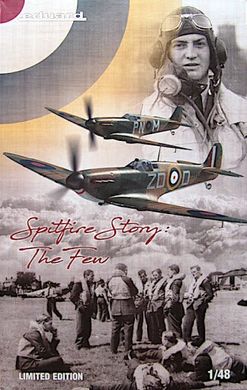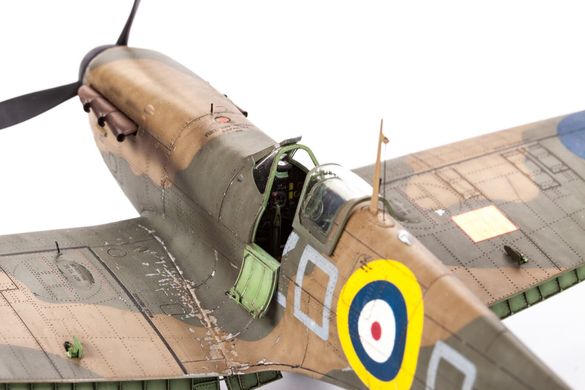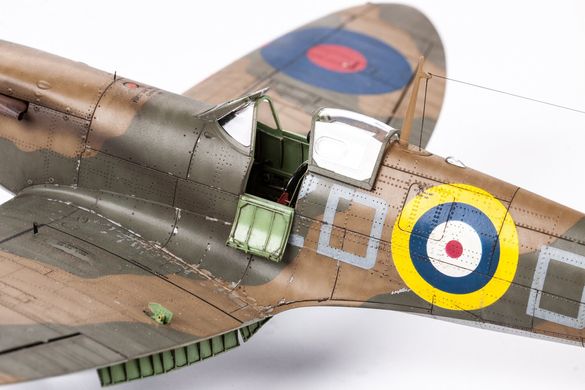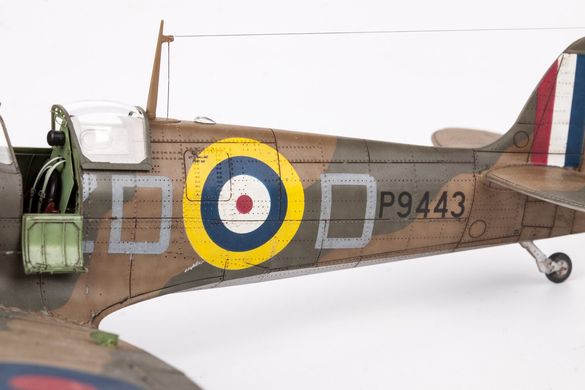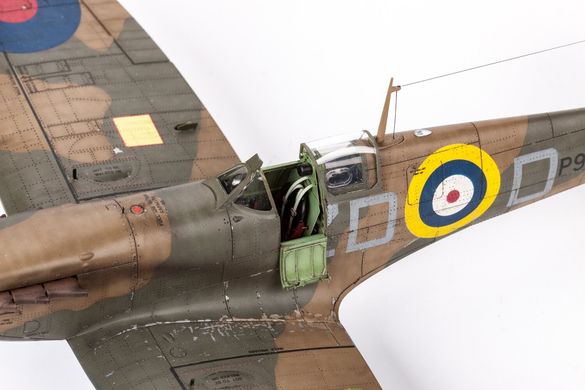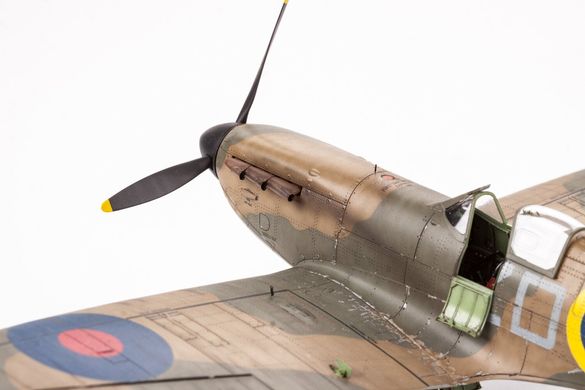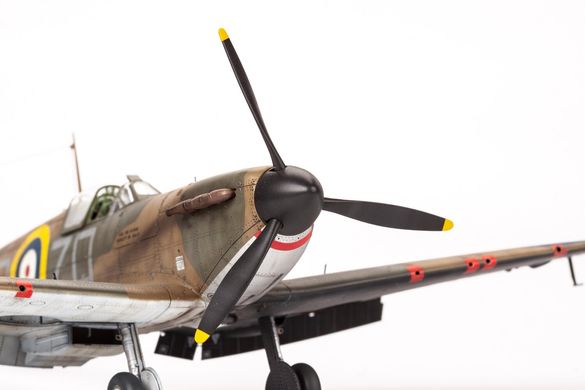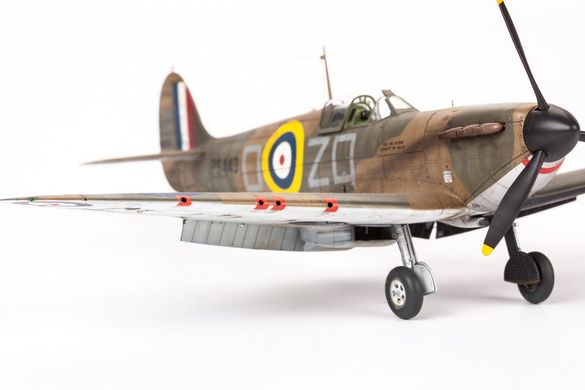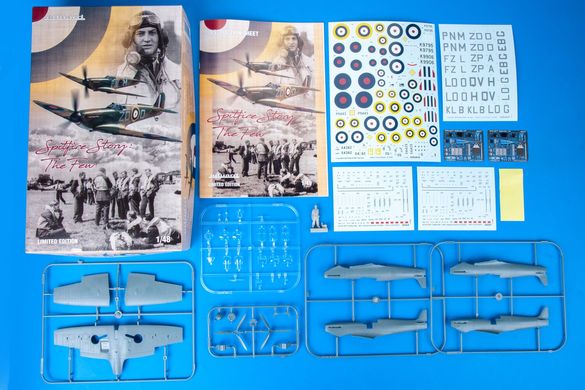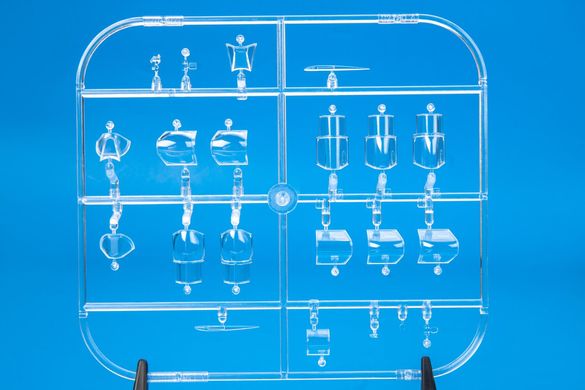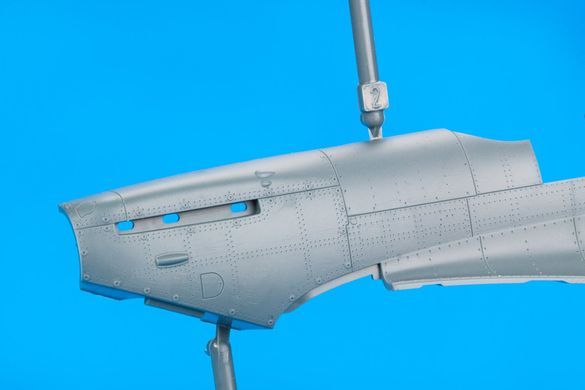1/48 The Spitfire Story: Spitfire Mk.1 TWO MODELS Eduard 11143
The Supermarine Spitfire is perhaps the most famous British fighter aircraft of the Second World War. It was an all-metal machine with a low-slung wing, characteristic elliptical wings, a classic tail and a retractable undercarriage. The flight of the prototype took place on March 5, 1936. "Spitfire" proved to be a staple of the Royal Air Force during the war and it continued to perform well after the war, remaining in production for 10 years. The history of the Spitfire began on the drawing table of RJ Mitchell, Supermarine's lead designer. The first machines arrived in part of the Royal Air Force in 1938, but when the Battle of Britain began in the summer of 1940, there were already 19 squadrons of modern fighters on the airfields - together with the slightly older "Hurricanes of the Islands" 600 aircraft were defending. As the war expanded, Spitfires saw service wherever the Royal Air Force operated in the Far East, North Africa and Italy, during the Normandy landings and combat operations in France, and finally during operations in Germany in 1945. For many Britons, it became a symbol of victory in the Second World War. This wonderful car has at least a dozen production versions. The most important of them, including the first serial Spitfire Mk.I with a Rolls-Royce Merlin II engine with a capacity of 1030 hp. First of all, it was this machine that made such an outstanding contribution to the Battle of Britain. Many versions of this model were developed, including the PR Mk IA (reconnaissance variant) or PR.IG (armed reconnaissance variant). Another interesting version was the Spitfire Mk.V with a 1440 hp Rolls-Royce Merlin 45 engine. Merlin 50 engines were later assembled. Serial production of this version began in 1941 and was the RAF's response to the appearance of the Messerschmitt Bf-109F. Another very successful version is the Spitfire Mk.IX, equipped with a Merlin 61 engine with a 4-blade propeller. It was created as an opponent of the Focke-Wulf Fw-190 and was put into series at the end of 1941. This version was modified many times and, for example, in 1944 received a new gyroscope, an enlarged rudder, or a different wing system. Another major version is the Spitfire Mk.XIV with a Rolls-Royce Griffon 61 engine and a five-blade propeller. Serial production began in October 1943. One of the last series was the Mk.21 version. This version had the Griffon 61 engine, heavily reinforced structure and skin, and the wings were lengthened, which increased their flying surface. Mass production began in March 1945. Technical data (Mk.XIV version): length: 9.14 m, wingspan: 11.23 m, height: 3.05 m, maximum speed: 717 km/h, lift: 18.5 m/s, practical ceiling : 13,200 m, maximum range: 1,815 km, armament: stationary - 4 7.7-mm machine guns and 2 20-mm Hispano Mk II guns, suspended - up to 225 kg of bombs.
glue and paint are not included in the set















